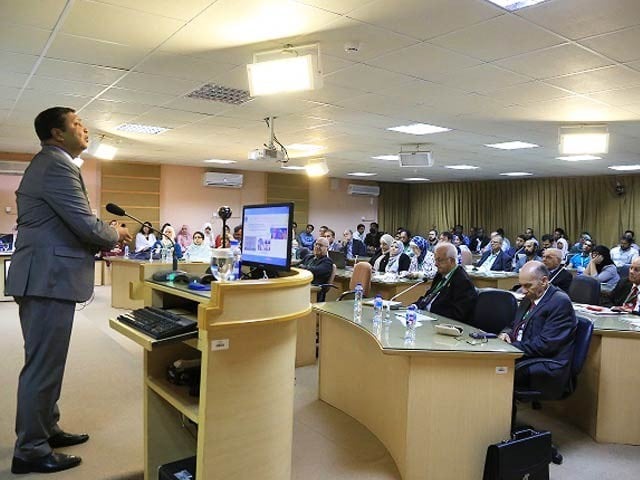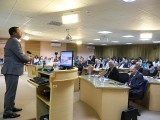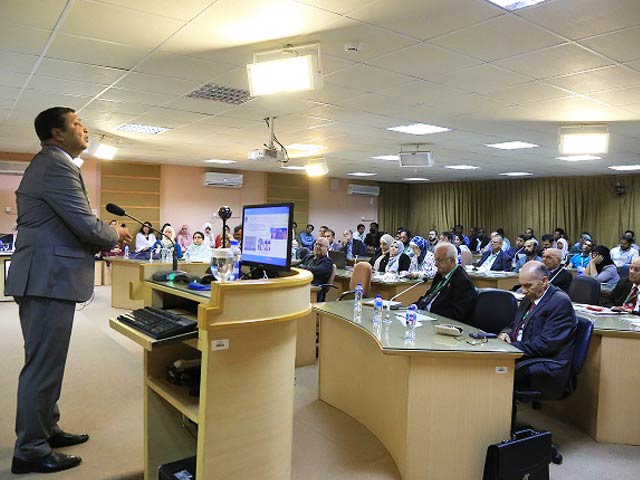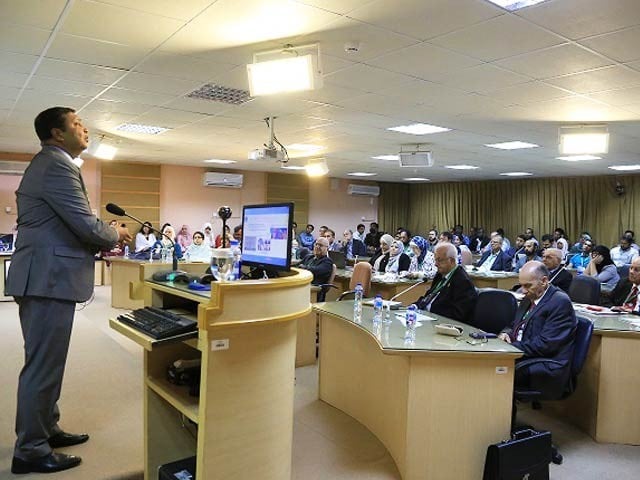
OIC COMSTEC Chairman, Dr. Iqbal Chaudhry addressing the participants of the International Islamic Scientific Event. Photo: Courtesy of ICCBS


Karachi: Experts associated with the World Organization of Islamic Countries (OIC) have urged Islamic countries to spend at least one percent of their gross national product (GDP) on science and technology research because the goal of prosperity and self-reliance is achieved through scientific research. Can only be obtained.
On the last day (March 7-8) of the twenty-fourth two-day scientific conference of the Islamic World Academy of Sciences (IAS) held at the International Center for Chemical and Biological Sciences (ICCBS), University of Karachi, experts discussed the OIC member countries. It has been emphasized that they should invest at least one percent of their GDP in research, science, technology and innovation for social and economic development. He urged OIC member countries to adopt research-based education for curiosity, creativity and problem-solving.
These views were expressed by experts from different countries while presenting recommendations at the closing ceremony of the 24th Scientific Conference of IAS on Wednesday. Many experts including Professor Muhammad Iqbal Chaudhry and IAS President Professor Adnan Badran (Jordan) spoke. The conference was organized by Islamic World Academy of Sciences, COMSTEC Islamabad and ICCBS, University of Karachi in collaboration with Pakistan, Jordan, Malaysia, Iran, Palestine, Bangladesh, Morocco, Turkey, Uzbekistan, Germany, USA, Singapore. And scientists and researchers from Australia participated.
Addressing the event, Prof. Iqbal Chaudhry pointed out that there is an urgent need to bridge the gap between academia and industry in OIC member countries so that joint R&D leads to social and economic development. He said Muslim countries need to create technology parks and incubators to commercialize the delivery of research and innovation and increase diversity in new materials and quality control. He said that science is a form of language that unites the entire humanity, through science, the gap between nations can be reduced. Prof. Iqbal Chaudhry also briefed the participants about the programs and initiatives of COMSTEC, which is the largest research fellowship program for the OIC region.
Prof. Adnan Badran urged the OIC member countries to form a consortium for the sustainable triangle of energy, water and food security associated with the Islamic World Academy of Sciences, which is known to OIC member countries to achieve self-reliance and SDGs. Connect with a network of research centers and urge COMSTEC to increase mobility grants for scientists from underdeveloped countries. He urged OIC member countries to strengthen cooperation and collaboration with the private sector to achieve a sustainable triangle of food security for future generations.
(function(d, s, id){
var js, fjs = d.getElementsByTagName(s)[0];
if (d.getElementById(id)) {return;}
js = d.createElement(s); js.id = id;
js.src = “//connect.facebook.net/en_US/sdk.js#xfbml=1&version=v2.3&appId=770767426360150”;
fjs.parentNode.insertBefore(js, fjs);
}(document, ‘script’, ‘facebook-jssdk’));
(function(d, s, id) {
var js, fjs = d.getElementsByTagName(s)[0];
if (d.getElementById(id)) return;
js = d.createElement(s); js.id = id;
js.src = “//connect.facebook.net/en_GB/sdk.js#xfbml=1&version=v2.7”;
fjs.parentNode.insertBefore(js, fjs);
}(document, ‘script’, ‘facebook-jssdk’));



